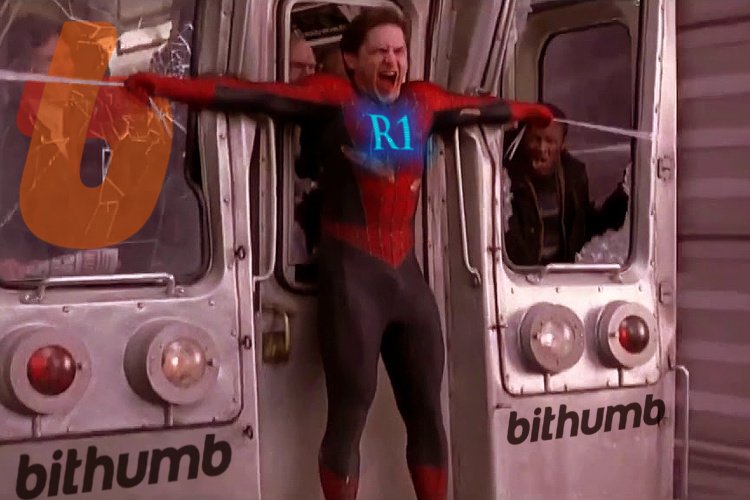Bithumb DEX: Just A Marketing Ploy For The Regulators

Bithumb exchange, which bitcoin trading volume equals 18.74% in South Korea, is the largest company in the Asian market. The fee for transactions is only 0.15%, and despite the fact that the platform is focused mainly on the South Korean audience, customers are provided with round-the-clock support in different languages. Yesterday, on October 15, Bithumb opened a decentralized trading platform.
A decentralized resource DEX was created due to the need to make transactions directly. Another reason is the issue of security: Bithumb has been repeatedly attacked by hackers. On July 3, 2017, the data of 30,000 customers were stolen and some users lost their funds. For this, the Korea Communications Commission fined the company $54,000. And as a result of hacking on June 19, 2018, the exchange lost $35 million, which immediately caused the fall of the cryptocurrency rate.
Bithumb ceased to open accounts linked to bank ones since August 1, because no bank was willing to cooperate with this digital exchange. Thus, representatives of Nonghyup said: “We have decided not to renew the contract because Bithumb still has problems in protecting consumers and information and preventing money laundering”. Shinhan Bank also terminated the partnership agreement (on August 29 it became known that Nonghyup is still going to resume cooperation with Bithumb, but while writing this article it has not happened yet).
Bithumb decided to take into account all the errors and close the gaps in the security system: the exchange signed a contract with the blockchain company One Root Network (RNT), which created the R1 Protocol designed for decentralized token exchange. RNT believes that the Protocol will significantly improve the security and efficiency of the applications.
How decentralized exchange works and what is the difference between 0x and R1?
The centralized exchange has a huge advantage - the purchase of cryptocurrency for fiat money through a bank card. But there is also a significant drawback — the involvement of a third party in each transaction (of the exchange itself). Exchange charges a fee, which negates the idea of a free digital market: the bank's dictate is replaced by another dependency. That is why the exchanges of a new format, such as EtherDelta and OasisDex, were invented.
The decentralized platform allows conducting peer-to-peer transactions. However, such an exchange is not legally responsible for the safety of traders' data, because clients trade with each other directly. Another disadvantage of the decentralized platform is a long time of transactions.
In October 2016, Will Warren and Amir Bandeali decided to improve decentralized platforms and developed the 0xOTC (Over the Counter) Protocol, which operates on Ethereum smart contracts. 0x joins other protocols by creating decentralized applications for faster transaction execution. Later, the developers released an updated version 0x2.0.
Our expert Gareth BARKER, banker and Korean financial services expert, reported in an interview for Bitnewstoday that R1, on which Bithumb DEX works, repeats the concept of 0x2.0: "0x is seen as a better platform than R1 for DEX, and I’m assuming there have been financial incentives for Bithumb to use R1 rather than 0x”.
What awaits Bithumb DEX?
According to Gareth BARKER, Bithumb has no profit in the South Korean market. Moreover, foreigners can no longer trade in South Korea. Using DEX Bithumb wants to master over-the-counter markets around the world. But Gareth BARKER believes that the company would get more benefits by staying on the old platform: “Bithumb will not be able to launch a successful decentralized platform without major investments and new technologies, and they will lose control of liquidity. For now, it is better to keep it centralized”, — Gareth BARKER assumes.
However, Bithumb has already opened DEX, which is probably just a marketing project that will soon take a fee for transactions. But it's not so much about the company's motives as it is about the impossibility of making an exchange that would be 100% decentralized. If the company is talking about the creation of a decentralized system, it is worth suspecting a populist step in such a statement. Gareth BARKER confirms our concerns: “I can't say the whole DEX is decentralized. Parts are decentralized, but not completely. This means that Bithumb does not control the exchange and prices. So it could be a marketing gimmick”.